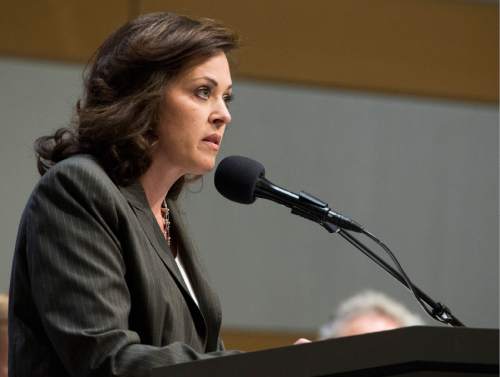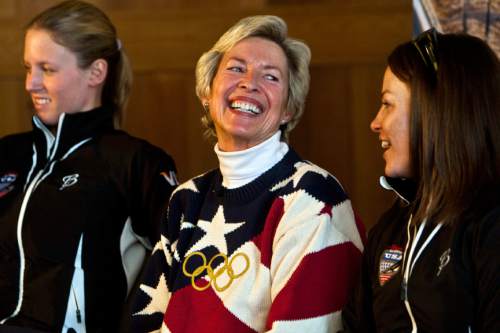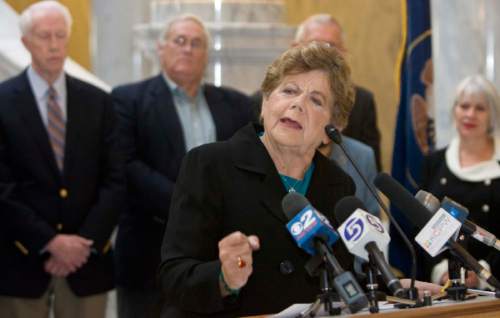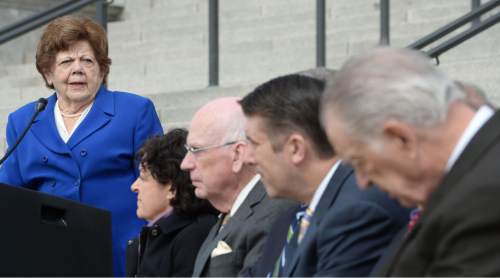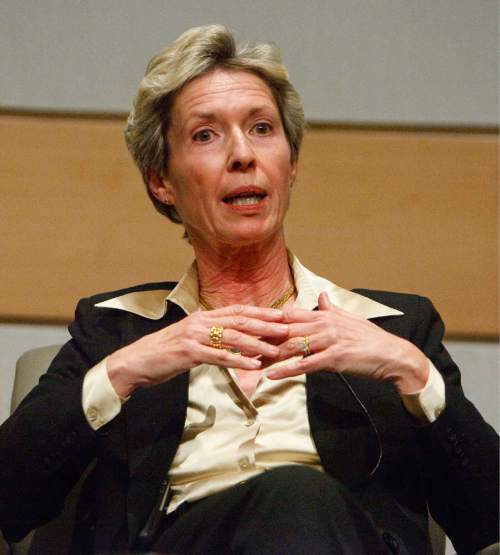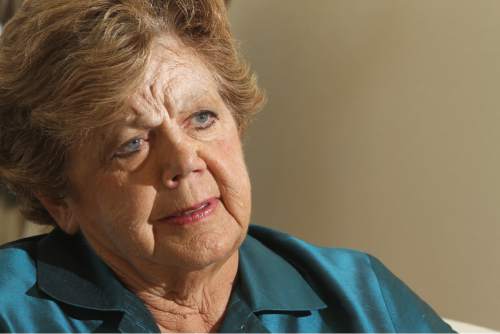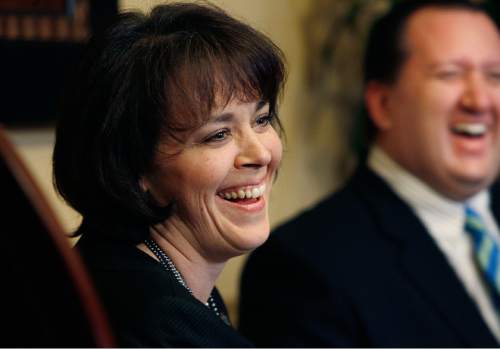This is an archived article that was published on sltrib.com in 2015, and information in the article may be outdated. It is provided only for personal research purposes and may not be reprinted.
A mind-set that women have no place in leadership roles has kept many Utah women from reaching top levels of government and business, according to a report released Monday by the Utah Women & Leadership Project.
Other factors at play include a lack of college degrees and a perception that Mormon culture encourages women to be "supporters and not learners," says project founder Susan Madsen, a professor of management at Utah Valley University who studies women and leadership.
Researchers with the Utah Women & Leadership Project asked a number of Utah women who hold leadership roles why life for Utah women is dismal by some metrics — including a lack of equal pay and a low ratio of women in decision-making and leadership roles in business and politics throughout the state.
Many said they believed "a lack of confidence is a problem for women," and that there's a mind-set that women have no place in leadership roles.
These issues prevent women from pursuing careers and running for office, according to the responses, and "more needs to be done to help girls and women become leaders."
The state is known for having few female legislators — just 16 out of a total 104. Six are in the Senate and 10 are in the House. The late Utah House Speaker Becky Lockhart, R-Provo, was the first woman in that powerful position. And former Gov. Olene Walker, appointed in 2003, was the state's first female chief executive.
In 2013, a Center for American Progress report on "how women are faring across the nation" ranked Utah last for its proportion of women in decision-making and leadership roles.
The survey notes that the gap in leadership can be partly attributed to lower college graduation rates for Utah women. Female students in other states graduate in higher numbers.
Pam Perlich, a University of Utah demographer, notes that many Utah women start college but do not finish.
"A lot of these issues of confidence and capacity," she said, "have to do with educational attainment and educational paths."
And Utah women's educational attainment is tied to cultural expectations from The Church of Jesus Christ of Latter-day Saints, the report found.
"This is always the deal," Perlich said. "We see that these things are correlated, but what is the causation there?"
Heather Groom, a former state school board member who is pursuing a master's degree in public administration at Brigham Young University, says there's a connection to Mormon culture's emphasis on women as wives and mothers.
"In our Utah culture, I think there's a sense of confusion," Groom said Monday. "We feel like we need to be moms or doing work. We need to think in terms of 'and.' "
Groom pointed to Lockhart as an example of someone who was both a tough public servant and a dedicated mother.
Perfectionism and fear of failure can also diminish confidence, according to the report.
But "letting yourself go out and try things and sometimes failing," Madsen said, "actually increases your confidence."
Madsen said that an "a-ha" moment often occurs at Utah Women & Leadership Project conferences when women realize that getting it wrong the first time can help in subsequent efforts.
And taking risks, Madsen said, is exactly the remedy for the dearth of Utah women in leadership positions.
Information for the study was collected from questions posted on the group's LinkedIn page last summer and notes from the "Confidence Crisis for Girls & Women" conference, hosted by UVU last September, as well as surveys sent to about 400 women who registered for that event.
Survey participants were "interested in the topic and at least somewhat proactive" in helping Utah women "gain confidence, voice and leadership skills," according to the report.
Madsen plans more workshops to help women gain confidence, finish college, run for public office and pursue a career path.
Twitter: @anniebknox


